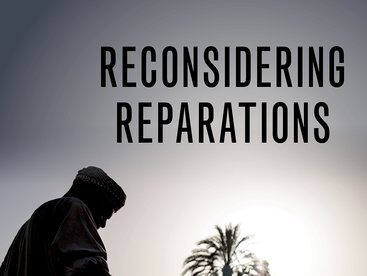While capitalism is typically said to commodify everything, much of what makes up our world isn’t commodified at all. It instead appears as a free gift: a social form that describes the condition of usefulness lacking value. The idea of the free gift can give us a deeper understanding of the environmental problems that plague contemporary capitalism. It can also help us better understand capitalism itself.
Building on Adom Getachew’s account of anticolonial “worldmaking,” Olúfẹ́mi O. Táíwò defends reparations as a worldmaking project aimed at creating a world free from domination. Yet given this ambition, his targets for climate justice seem, if anything, too modest: why stop with eliminating tax havens or endowing the Global Climate Fund? Why not aim at the reorganization of the global economy itself, as many anti-colonial leaders once did? And if we accept these broader ambitions, what political formations might plausibly advance the project of anticolonial climate reparations?



